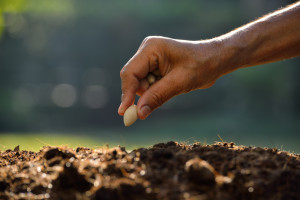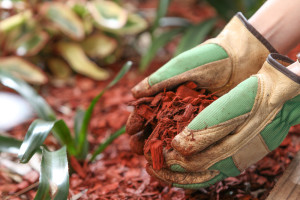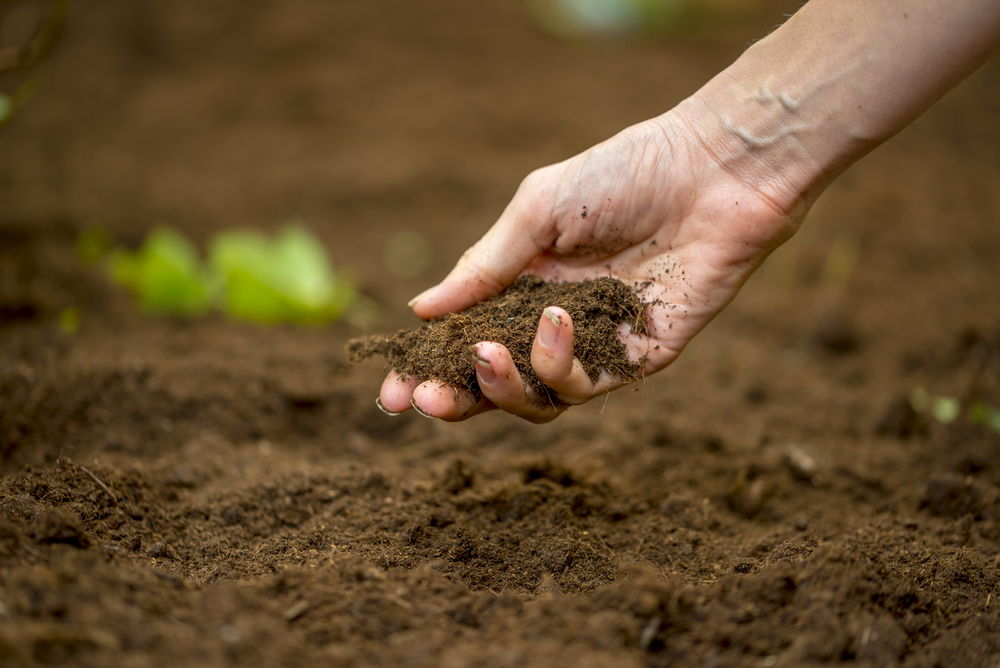It’s really quite easy to plant and grow a flourishing organic garden. It all begins thinking of your organic garden as an integrated ecosystem built upon nature’s principles, not man’s laboratory creations.
The foundation for organic gardening is biodiversity. In the wild, a variety of plants and wildlife exist interdependently-providing shelter, moisture, continual bloom when pollen is available for insects, and support for all the creatures within the system.
You can apply the biodiversity principle at home by following these key steps in organic gardening:
- Build-up the soil
- Use natural fertilizer and pest control
- Choose companion plants for your climate zone
- Arrange plants so they provide a habitat for insects and wildlife that actually benefit garden health.
If you combine these principles with good gardening habits, you’ll soon have an organic green thumb (and lots of delicious, good-for-you vegetables to eat)!
It’s Not Just Dirt!

What’s the difference between how the organic gardener feeds a garden compared to the conventional gardener? The conventional gardener feeds the plant (with chemicals from a lab), while the organic gardener feeds the soil.
Soil is living matter full of as many as 50 billion microscopic plants and organisms! Soil, and the creatures living in it, requires air and water to thrive. If you don’t know the condition of your soil, contact your local master gardening organization, or university agriculture department-both will usually test soil for free or a nominal fee. When buying soil, you want it largely composed of organic material (read the package label).
To maintain and protect organic soil:
- Continually feed with organic matter-compost, manure, leaves, straw, and grass clippings.
- Weed regularly
- Incorporate companion plants that naturally tame weed growth.
- Check plant packaging or a regional organic gardening guide to learn how to properly select and space plants to best match the yield you want from your garden.
- Use mulch.
Protect Against Pests and Fertilize, Naturally

Synthetic herbicides and insecticides seep into groundwater, affect the health of wildlife and plants, and can contaminate your food. These chemicals also kill off beneficial insects that are part of nature’s pest control system.
Synthetic fertilizers are not recommended for an organic garden because residual chemicals, including salts, can interfere with plant growth and even build-up in lawns. For example, quick-release high nitrogen fertilizers produce lush foliage but damage root structure – a plant’s only way to extract nutrients.
Your best defense against pests is preventing a problem to begin with. You can accomplish this in a number of ways, all of which will invite natural enemies of pests into your growing area. Plus, these are great practices for any size garden:
- Carefully select plants for the your climate zone, build-up your soil, and plant in appropriate light/shade and space for the growing season.
- Water early in the day, not at night. Keep water in the root zone, not aimed at the plant.
- Maintain “plant personal space.” Prune plants and weed to maintain good air circulation and prevent crowding, which can spread disease.
- Use netting or chicken wire to keep out pests that scurry around your yard.
- Learn to properly use botanical poisons, chemicals extracted from plants or minerals that are toxic to plant predatory insects (ex. Neem, certain essential oils).
You can also search online for resources to help you with natural, integrated pest management (IPM). These resources can also help you resolve a pest problem.

